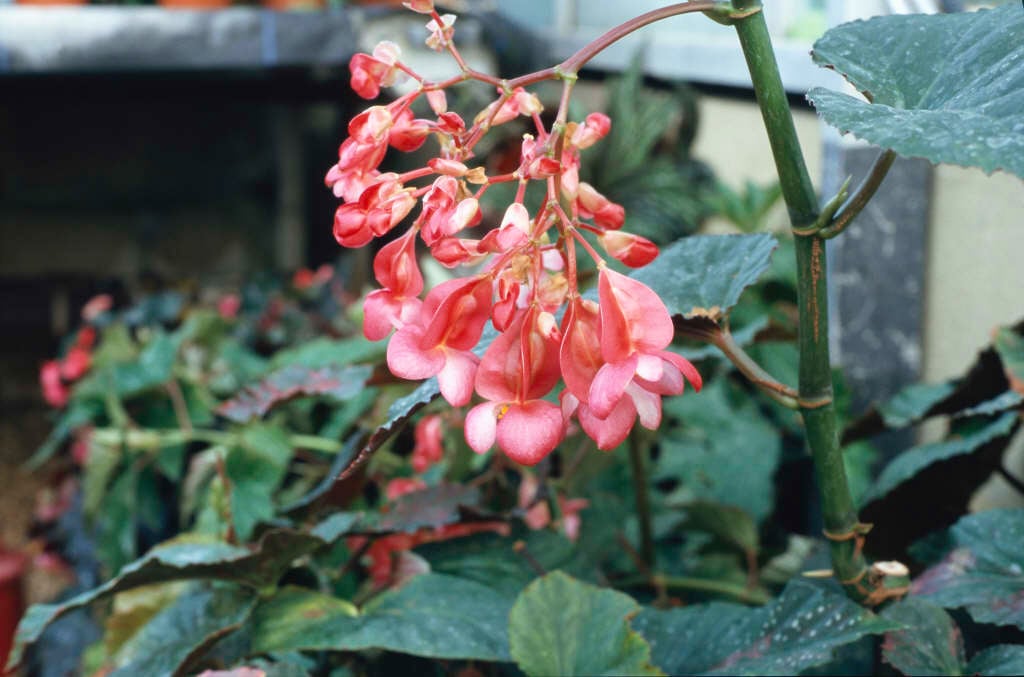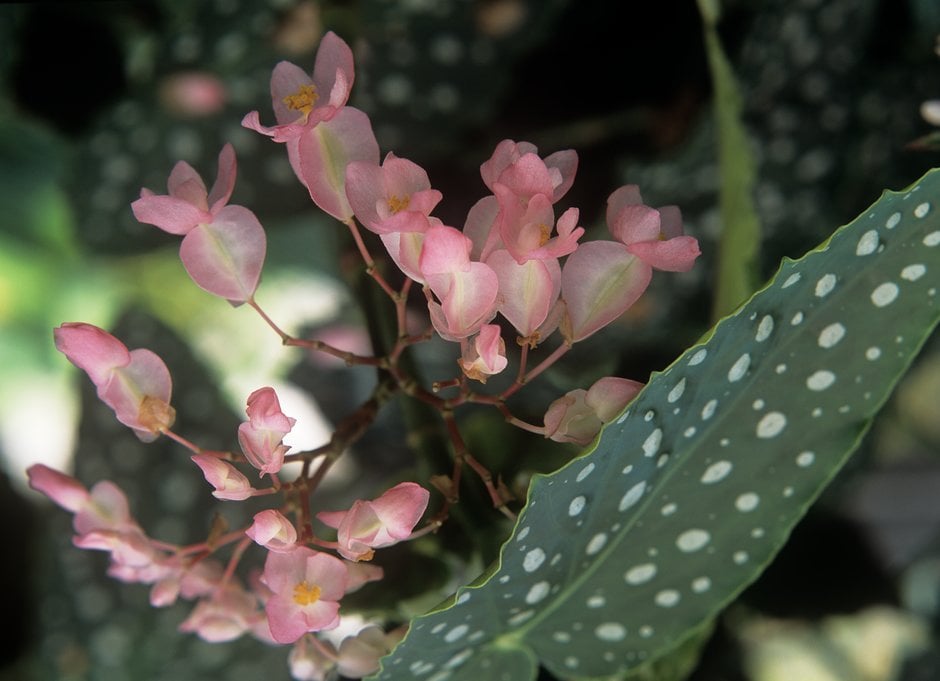Begonia 'Lucerna' (C)
begonia 'Lucerna'
A strong-growing, erect cane-stem begonia with obliquely ovate, olive green leaves heavily spotted with silver, and large panicles of pink flowers 3-4cm across in summer
Synonyms
Begonia corallina 'Lucerna'Begonia × corallina 'Lucerna'
see moreBegonia 'Corallina de Lucerna'
Begonia 'Lucerne'
Begonia 'Carolina de Lucerna'
Size
Ultimate height
1.5–2.5 metresTime to ultimate height
2–5 yearsUltimate spread
0.1–0.5 metresGrowing conditions
Moisture
Well–drainedpH
Acid, NeutralColour & scent
| Stem | Flower | Foliage | Fruit | |
| Spring | Green Grey Silver | |||
|---|---|---|---|---|
| Summer | Pink | Green Grey Silver | ||
| Autumn | Green Grey Silver | |||
| Winter |
Position
- Partial shade
Aspect
South–facing or West–facing or East–facing
Exposure
Sheltered Hardiness
H1BBotanical details
- Family
- Begoniaceae
- Native to GB / Ireland
- No
- Foliage
- Deciduous
- Habit
- Columnar upright
- Potentially harmful
- Ornamental bulbs - not to be eaten. Wear gloves and other protective equipment when handling. Pets: Ornamental bulbs - not to be eaten - see the HTA guide to potentially harmful plants for further information and useful contact numbers
- Genus
Begonia can be annuals, evergreen or deciduous perennials or shrubs, with fibrous, tuberous or rhizomatous roots and usually asymmetrical leaves, often strikingly patterned, and small or large flowers, both male and female in the same cluster
- Name status
Accepted
- Horticultural Group
- Cane-stem begonias are erect, evergreen perennials with fibrous roots and cane-like stems with asymmetrical, strongly toothed leaves, often strikingly marked, and showy flower clusters in spring or summer
How to grow
Cultivation
Grow outdoors in well-drained humus-rich, neutral to acidic soil. Grow in good but not direct light in a frost-free area. Under glass grow in well drained, peat-free compost. Will not tolerate water logging. See Begonias: outdoors for further advice.
Propagation
Propagate by seed, stem tip or leaf cuttings
Suggested planting locations and garden types
- Cottage and informal garden
- Patio and container plants
- Mediterranean climate plants
- Low Maintenance
Pruning
No pruning required
Pests
May be susceptible to caterpillars, mealy bugs, mites, glasshouse thrips, vine weevil and aphids
Diseases
May be susceptible to grey moulds, powdery mildews, stem rot and rhizome rot
Love gardening
Sign up to receive regular gardening tips, inspiration, offers and more
View our Privacy Policy
Get involved
The Royal Horticultural Society is the UK’s leading gardening charity. We aim to enrich everyone’s life through plants, and make the UK a greener and more beautiful place.

